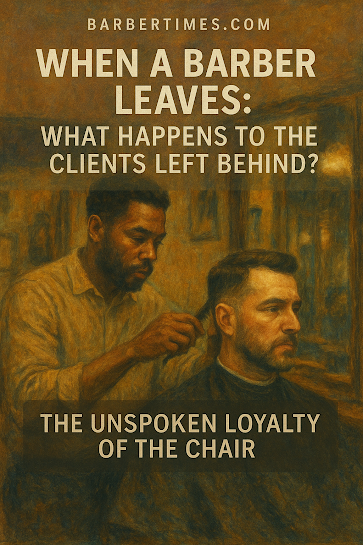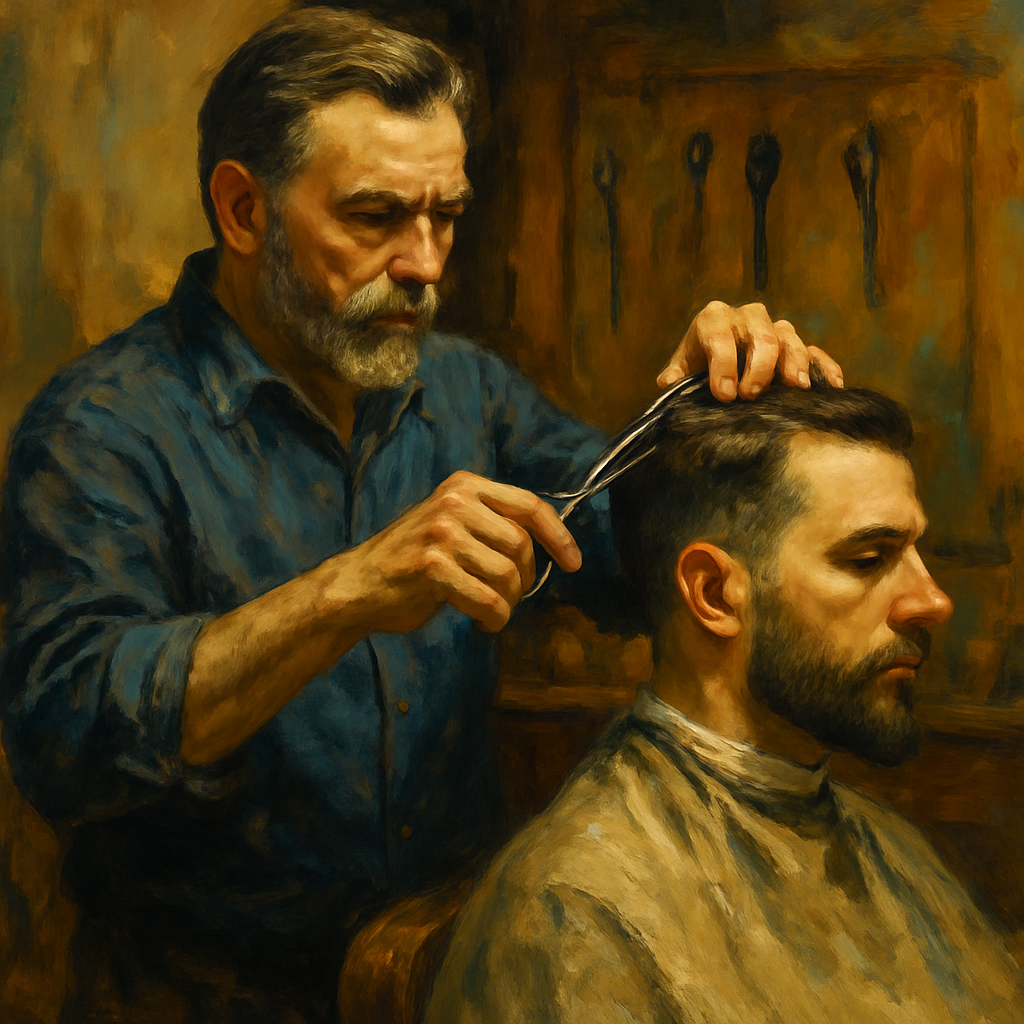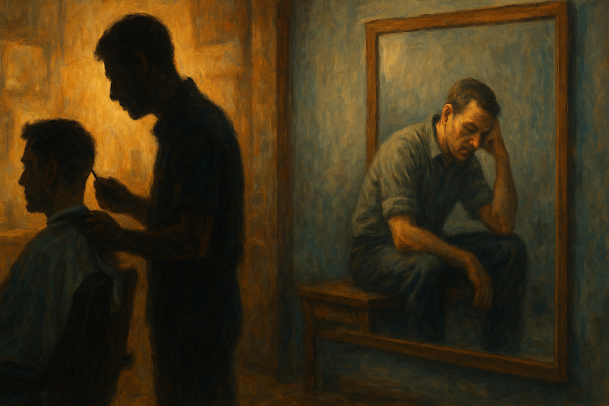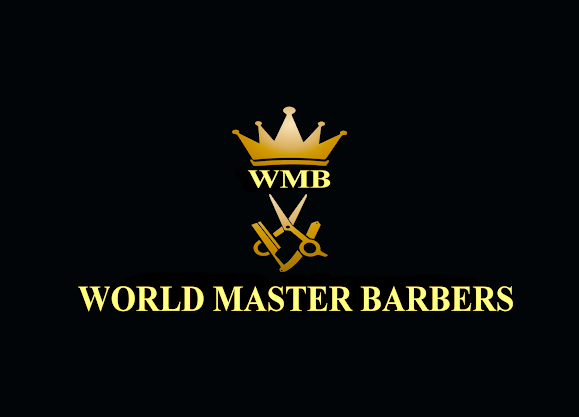When a Barber Leaves: What Happens to the Clients Left Behind?
July 7, 2025

The Unspoken Loyalty of the Chair
In the tight-knit world of barbering, chairs aren't just places to sit — they're sanctuaries of trust, routine, and identity. Behind every chair stands not just a barber, but a familiar face, a rhythm, a connection built over hundreds of quiet trims and loud laughs. So, what happens when that barber — the one a client has seen every few weeks for years — decides to leave?
Let's paint a common scene:
In a bustling five-chair barbershop, each barber has carved out their own loyal following. One of them — let's call him Alex — has steadily built a client base of around 100 regulars. These aren't just casual walk-ins. These are the "I only book with Alex" type of clients, the ones who'll wait an extra week rather than try another chair.
But now, Alex decides it's time for a change. Maybe he wants better hours, a new environment, or to be closer to family. Maybe he's even opening his own shop. What happens next is one of the most telling aspects of the barbering industry — a moment that reveals just how deeply personal the relationship between barber and client really is.
The Migration Patterns of Loyalty
If Alex moves to another shop nearby,
most of his regulars won't think twice — they'll follow. Even if it means a less convenient location or slightly higher prices, loyalty wins. Because once you've found your barber, it's not just about the haircut — it's about the comfort, the banter, the ease of being known.
If Alex moves across town,
he'll still retain a solid chunk of his clients. Those who value consistency over convenience will make the trip, at least occasionally. Some will stay loyal, others may gradually fade out — not out of dissatisfaction, but due to life's logistics.
But if Alex leaves the city or the country entirely,
a fascinating pattern emerges.
You might think his clients would simply rotate to his old colleagues — after all, they're familiar with the shop, and the other barbers are skilled. But surprisingly, most of Alex's die-hard clients don't. Instead, they begin the search elsewhere. Not necessarily for the best haircut, but for a similar feeling — someone who shares Alex's vibe, his energy, his style of conversation (or silence). It's less about the cut, and more about the connection.
More Than Just a Haircut
That's because barbering isn't just a trade. It's a relationship business. It's where sharp fades meet softer bonds. And when those bonds are severed, it leaves clients not just in search of another haircut — but in search of a sense of belonging.
Some clients do try sitting in one of the other four chairs Alex left behind, but this is usually rare — especially if those chairs are already "claimed" by loyal clients of their own. More often, the vacancy left behind is emotional as much as it is physical.
What This Means for Barbershops
It underscores something powerful:
Your shop isn't just built on chairs and tools — it's built on people. On personality. On trust. And when a barber leaves, especially one who has become a cornerstone of their clientele's grooming routine, it's not just a schedule that changes — it's the shop's entire energy.
This isn't a bad thing. In fact, it's a tribute to how personal the barbering profession really is. It's proof that in this world, being good isn't just about skills — it's about being you. The clients who follow their barber across the city — or the ones who feel a sense of loss when they can't — are living proof of that.
The True Measure of Impact
So to every barber who's ever wondered whether their work really matters…
Just ask the clients who'd drive an hour, wait an extra week, or skip the haircut altogether rather than sit in someone else's chair.
In barbering, loyalty isn't bought.
It's earned — one cut, one conversation, one connection at a time.


